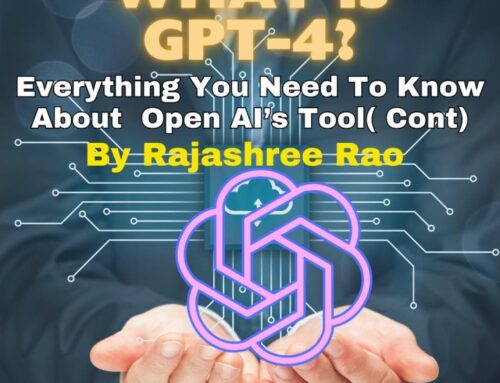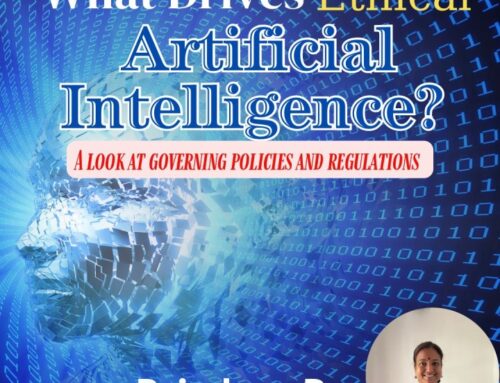Who’s the Arbiter? Unravelling the Ethics of AI and the Question of Ownership. Perspectives on Righteous Algorithms and Divergent Ethics.
Artificial Intelligence (AI) has emerged as a transformative technology, revolutionizing various industries. However, with the increasing prominence of AI, there arises a pressing need to discuss and address the ethical implications of its application. In this article, we delve into the concept of Ethical AI and explore whose ethics it adheres to, in light of current and future developments.
1. What is Ethical AI?
Ethical AI, also known as Moral AI or Responsible AI, refers to the integration of ethical considerations and moral values into the design, development, and deployment of artificial intelligence systems. The goal of Ethical AI is to ensure that AI technologies operate in ways that are fair, transparent, accountable, and respect human values and rights.
2. The Importance of Ethical AI:
Ethical AI is crucial to prevent the misuse of AI technologies and protect individuals and societies from potential harm. It promotes trust in AI systems, encourages responsible innovation, and enables AI to be a force for good.
3. The Evolution of AI Ethics:
a.Early Perspectives on AI Ethics
The discussion on AI ethics dates back to the emergence of AI itself. Early debates centered around the hypothetical scenarios of AI posing threats to humanity. As AI advanced, so did ethical considerations, focusing on the impact of AI on privacy, security, and employment.
b.Contemporary Ethical Debates
In the contemporary era, AI ethics has gained more prominence with concerns related to biased algorithms, deepfakes, and autonomous weapons. Ethical debates encompass issues such as AI in decision-making, social biases in AI systems, and AI’s role in exacerbating inequality.
4. Whose Ethics Does AI Follow?
a. Cultural and Regional Differences
Ethics vary across cultures and regions, raising questions about whose ethical principles should AI follow. The development of AI should consider diverse perspectives to avoid imposing a single set of values on a global scale.
b. Corporate Ethics in AI Development
AI development is often driven by corporations that prioritize profit and efficiency. Balancing corporate interests with ethical considerations becomes crucial to ensure AI serves humanity’s best interests.
5. Ensuring Ethical AI Development
a.Ethical Frameworks and Guidelines
Creating ethical AI requires the establishment of comprehensive frameworks and guidelines. Governments, organizations, and tech communities are actively formulating ethical principles to govern AI development and deployment.
b.Responsible AI Implementation
Ethical AI goes beyond principles and requires responsible implementation. Developers must be mindful of the potential biases in datasets, ensure transparency in algorithms, and provide clear mechanisms for user consent.
6. The Challenges of Ethical AI
a. Bias and Fairness in AI Algorithms
AI algorithms can inherit biases present in the data they are trained on, leading to discriminatory outcomes. Mitigating bias and ensuring fairness is a persistent challenge in the ethical development of AI.
b. Privacy and Data Protection
AI systems often handle vast amounts of personal data. Safeguarding privacy and ensuring data protection are paramount concerns in ethical AI development.
c. Accountability and Transparency
AI decision-making processes can be complex and opaque. Establishing mechanisms for accountability and transparency helps build trust and aids in the responsible use of AI.
d.Value Conflicts and Human Oversight
Different societies and cultures hold varying ethical values. As a result, creating a universal ethical standard for AI becomes complex, as what is deemed ethical in one region might not be considered so in another. AI systems are powerful, but they are not flawless. Human intervention and oversight are necessary to ensure that AI decisions align with ethical principles.
e. Unforeseen Consequences and Lack of Regulation
AI systems are designed to optimize specific objectives. However, unintended consequences may arise, highlighting the need for thorough testing and risk assessment. As AI rapidly evolves, existing regulations may struggle to keep pace. The absence of comprehensive and up-to-date regulations can lead to potential misuse of AI technology.
7. Whose Ethics Should Govern AI?
Determining whose ethics should govern AI is a challenging question. Different stakeholders have varying interests, and it’s essential to strike a balance between different perspectives. Here are some key players in the Ethical AI debate:
a.Governments and Policy Makers
Governments play a crucial role in setting guidelines and regulations for AI development and deployment. They represent the interests of the broader society and are responsible for ensuring AI aligns with national and international ethical standards.
- AI Developers and Researchers
Those involved in creating AI technologies carry the responsibility of incorporating ethical considerations into their work. This includes addressing biases, ensuring transparency, and prioritizing user safety.
- Industry and Corporate Entities
Private companies and industries adopting AI must uphold ethical practices. They must consider the potential impact of their AI systems on users, customers, and society as a whole.
- Academic and Ethical Experts
Academic institutions and experts in ethics play a critical role in shaping the discourse around Ethical AI. Their research and insights can influence policy decisions and industry practices.
- Civil Society and Activists
Civil society organizations and activists play a significant role in holding AI developers and policymakers accountable. They advocate for ethical AI practices and ensure that the technology serves the greater good
8. Future Directions of Ethical AI
a. AI in Autonomous Systems
The future holds the integration of AI into autonomous systems such as self-driving cars and drones. Ethical considerations are vital to ensure safety and reduce potential risks associated with autonomous AI.
b. AI and Human Augmentation
AI can augment human capabilities, enhancing various aspects of life. Ethical guidelines will shape the integration of AI and human augmentation to benefit society.
c. AI in Healthcare and Medicine
AI holds great promise in revolutionizing healthcare. However, ethical considerations must be addressed to ensure patient privacy, data security, and equitable access to healthcare services.
In conclusion, Ethical AI is an indispensable aspect of the AI revolution. As AI technologies continue to evolve and permeate various aspects of our lives, ensuring that they align with ethical principles becomes increasingly crucial. Addressing challenges such as bias, transparency, accountability, and unforeseen consequences is vital for building trustworthy AI systems. Moreover, the responsibility of governing AI ethically falls on various stakeholders, including governments, developers, industries, academics, and civil society. Collaborative efforts between these stakeholders will lead us toward a future where AI serves humanity in the most responsible and ethical manner possible.
As we continue to explore the frontiers of AI, let us remain committed to upholding ethical principles, thereby harnessing the full potential of this groundbreaking technology for the betterment of society.
#ArtificialIntelligence #EthicalAI #AIethics #MachineLearning #TechnologyEthics #AIdebate #TechMorals #AIResponsibility #AIRegulation #AIinSociety #EthicalDilemma #AIdebate #MachinesMorals #TechDebate #techutzpah Thinkers360




